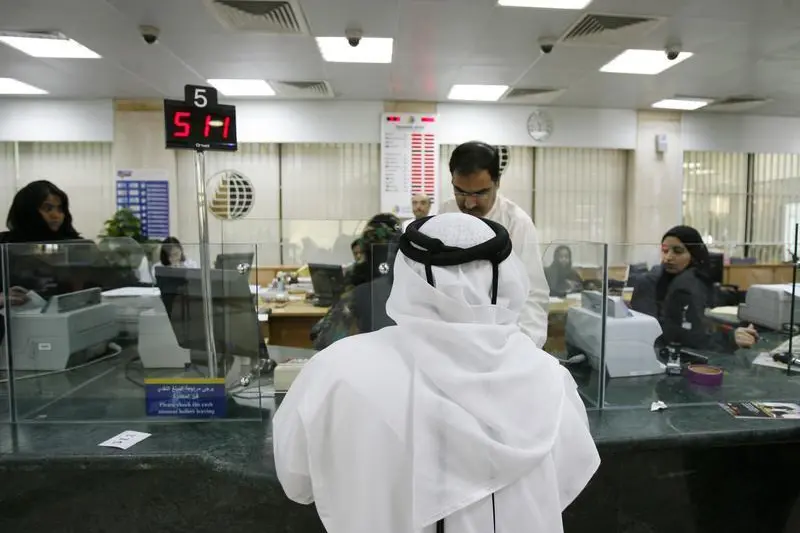PHOTO
UAE banks’ credit profiles could deteriorate due to the coronavirus pandemic and lower oil prices, and consequently face a wave of mergers and acquisitions if the crisis persists, according to a new analysis.
Fitch Ratings said in a note that sectors critical to the UAE, including tourism, hospitality, real estate, construction, retail, wholesale, trade and transportation, as well as major events like the Dubai Expo 2020, are now at risk.
“[The impact] will be compounded by lower oil prices, particularly through reduced lending growth,” Fitch said.
“If coronavirus challenges persist, a wave of mergers and acquisitions could follow, particularly among banks with weaker franchises,” it added.
Several countries have closed their borders to stop the spread of the virus, which has so far infected more than 300,000 people worldwide.
The UAE confirmed 45 new cases of coronavirus infections on Monday, taking the total number of cases in the country to 198, while the number of recoveries from the disease stood at 41.
Earlier in March, the Organization of Petroleum Exporting Countries (OPEC) failed to strike a deal with its allies, led by Russia, on oil production cuts, which effectively means that members can now pump as much as they can starting April 1.
Saudi Arabia slashed crude prices for April and planned output hikes after Russia refused to support deeper oil production cuts.
Brent Crude oil prices plunged as a reaction to the news and have been trading this week close to the $28 per barrel level, down from the $51 per barrel level recorded at the beginning of March.
The most influential factor on UAE banks' Viability Ratings (VRs), which average 'bbb-', is asset quality according to the note.
“Capital and liquidity buffers should protect VRs in the short term, but if operating conditions remain difficult for a prolonged period, downgrades are likely, especially for banks with weaker capital buffers. Smaller banks are generally more vulnerable, as they have weaker franchises, thinner capital buffers, and lower revenue generation and diversification,” Fitch said.
The ratings agency also noted that deteriorating business conditions in the retail and wholesale trade, and in the real estate and construction sectors - which represented 29 percent of the total bank lending at the end of 2019 - due to the coronavirus will weaken banks’ asset quality.
Persistent oversupply, lower oil prices and weaker business confidence have already made operating conditions in the real estate sector very difficult, putting pressure on property prices, according to Fitch.
“Recent measures by the Central Bank of the UAE to increase maximum loan-to-value ratios and to allow real estate lending up to 30 percent of total loans may increase banks' asset quality vulnerability to falling real estate prices,” the note said.
“UAE banks' potential problem loans (Stage 2 and Stage 3 loans under IFRS 9) are already high, averaging 10 percent to 20 percent of gross loans, and are likely to increase,” the note added.
The UAE Central Bank launched on March 14 a 100 billion UAE dirhams ($27.2 billion) comprehensive economic monetary package to allow banks to delay principal and interest payments for up to six months on outstanding loans for affected private sector companies and retail customers by the pandemic.
The total value of stimulus packages introduced by the UAE since the coronavirus outbreak has amounted to 126.5 billion UAE dirhams.
“The government support package allowing the postponement of principal and interest payments could provide some relief, but will delay the recognition of impaired loans and will understate the real level of problem loans. Lower cash-flow generation by corporates as a result of subdued economic conditions will lead to further loan restructuring. Banks with already low reserve coverage of problem loans are the most vulnerable to rising Stage 2 loans,” the note said.
Pressures on banks' asset quality will increase if Dubai Expo 2020 is severely disrupted, Fitch said, noting that many banks are exposed to Dubai Expo 2020-related projects in infrastructure and the real estate and construction segments.
The deterioration in loan-quality metrics is likely to translate into higher loan impairment charges (LICs), denting banks' profitability.
“Continued subdued real estate prices will hamper banks' prospects of loan recoveries and push up LICs, as most loans are collateralised by real estate assets. Other collaterals, such as shares, will also be significantly affected,” Fitch said.
“Banks also face pressures on margins from the 125bps reduction in the central bank's one-week certificates of deposit interest rate, with interbank rates (EIBOR) reaching their lowest levels since mid-2016. We expect growth in banks' non-interest revenues to be limited given subdued business volumes,” it added.
(Reporting by Gerard Aoun; editing by Cleofe Maceda)
#UAE #BANKING #M&A #FITCH #CORONAVIRUS
Disclaimer: This article is provided for informational purposes only. The content does not provide tax, legal or investment advice or opinion regarding the suitability, value or profitability of any particular security, portfolio or investment strategy. Read our full disclaimer policy here.
© ZAWYA 2020





















